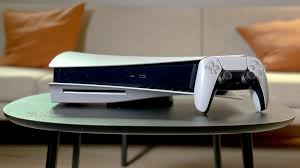The arrival of the PlayStation 5 (PS5) has brought about a new generation of solid-state drives (SSDs), but surprisingly, it has also secured the future of Gen 4 NVMe SSDs. While Gen 5 models are emerging for PC, the PS5’s unique storage expansion capabilities have made Gen 4 SSDs indispensable for gamers. In this article, we will explore why the PS5 has prolonged the lifespan of Gen 4 SSDs and how this impacts the storage drive market.
The Importance of Gen 4 SSDs for the PS5
The PS5’s limited internal storage space has prompted the need for additional storage options, and the only way to expand it is by utilizing a Gen 4 NVMe SSD plugged into the console’s M.2 port. This has made the implementation of Gen 4 SSDs in the PS5 a priority for manufacturers. Despite the emergence of Gen 5 SSDs, Gen 4 NVMe SSDs continue to push the boundaries of storage performance on the PS5.
Unleashing Lightning Fast Speeds
Gen 4 SSDs have been available on the market for over three years, and they boast impressive read speeds of up to 8,000 MB/s. While some argue about the significance of SSD read and write speeds on the PS5, it is crucial to note that a compatible drive should have at least 5,500 MB/s sequential reads. These speeds are still incredibly fast, even when compared to the anticipated speeds of Gen 5 SSDs, which are expected to be approximately 60% faster, reaching up to 13,000 MB/s.
The Storage Space Challenge
The increasing size of games has become a challenge for console gamers. With each passing year, game sizes continue to grow, and the PS5’s 825GB of memory can quickly fill up with just a few titles. This is where Gen 4 SSDs come to the rescue, significantly increasing the console’s storage capacity and allowing gamers to have more games installed simultaneously. As the demand for larger storage space grows, Gen 4 SSDs become an essential accessory for PS5 owners.
The Impact on the Storage Drive Market
The introduction of Gen 5 SSDs would typically push manufacturers to transition quickly to the new technology to cater to PC gamers looking to upgrade their systems. However, the PS5 changes this dynamic. Despite the availability of Gen 5 SSDs, the PS5 does not support the more advanced SSDs, creating a captive market of gamers eager to purchase Gen 4 SSDs. Manufacturers are now focusing on upgrading Gen 4 technology instead of moving on to Gen 5.
Customizing Gen 4 SSDs for the PS5
To meet the specific requirements of the PS5, manufacturers have started releasing PS5-tailored models of Gen 4 SSDs. These models feature innovative designs, such as bespoke heatsinks that fully surround the SSD or custom-engineered heatsinks that replace the M.2 slot cover. By adapting their products to fit the PS5’s unique design, manufacturers are catering to the growing market of PS5 owners who want to upgrade their consoles with Gen 4 SSDs.
The Battle for Speed and Storage Capacity
As the demand for Gen 4 SSDs increases, manufacturers face a new challenge: how to compete with each other to cater to the PS5 audience. Will they focus on creating SSDs with maximum speed and storage capacity, or will they aim for drives that meet the PS5’s minimum speed requirements while maximizing storage capacity? This competition between manufacturers will likely result in further advances in Gen 4 SSD technology in the coming years.
The Price Plunge of Gen 4 SSDs
The arrival of Gen 5 SSDs has had an unexpected positive impact on Gen 4 SSDs for the PS5. As the market shifts towards the next generation of SSDs, the prices of Gen 4 SSDs have dropped significantly. In recent months, 1TB PS5 SSDs have been retailing for under $100/£100, making them more accessible to a broader range of gamers. Even top-tier options like the WD Black SN850 and Samsung 980 Pro have become more affordable, making the choice to upgrade to a Gen 4 SSD even more compelling.
The Future of PS5 SSDs
While the advent of Gen 5 SSDs may suggest the eventual obsolescence of Gen 4 SSDs, this is not the case. A potential upgrade to a hypothetical PS5 Pro, which could support Gen 5 SSDs, would not render Gen 4 SSDs irrelevant. The backward compatibility of the NVMe 2.0 port ensures that older Gen 4 models will still be compatible with future consoles. Additionally, developers would need to consider the large player base with standard PS5 consoles, making it unlikely that Gen 4 SSDs will disappear anytime soon.
Conclusion
The PS5’s unique storage expansion capabilities have secured the continued relevance of Gen 4 SSDs. Despite the emergence of Gen 5 SSDs for PC, the demand for Gen 4 SSDs remains strong due to the PS5’s limited internal storage space. Manufacturers are adapting their products to fit the PS5’s design, and the availability of PS5-tailored Gen 4 SSDs has further propelled their popularity. As the market evolves, the competition among manufacturers will drive further advancements in Gen 4 SSD technology, ensuring that

No comments! Be the first commenter?